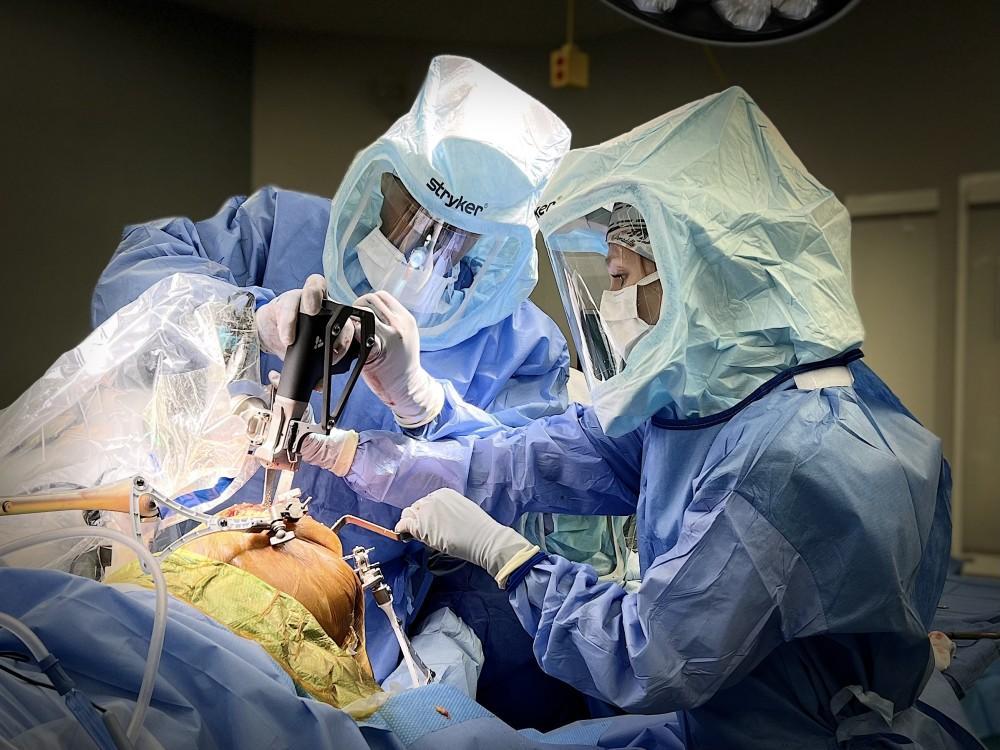
Metal Parts in Hip and Knee Replacement Surgery: FAQs

- What are the chances of my body “rejecting” the implant?
When it comes to organ transplants, your body can reject the new and foreign organ for any number of reasons. However, with hip or knee replacements, rejection to the metal is exceedingly rare. These metal materials have been thoroughly tested and proven to be well tolerated by the body and have an extensive record of success. In some uncommon cases, the parts may become loose or infected, however, this is usually due to external factors and not necessarily because your body has rejected the new parts.
- How do I know if I have a recalled implant?
Modern hip and knee replacement parts have an extensive history detailing excellent safety and few known mechanical issues. Recently, there has been some cases where specific implants have been recalled due to various design and manufacturing related reasons. Most companies develop several models and designs of their implants. Take note, simply because one model has been recalled doesn’t mean that other models are poorly designed. A similar analogy is the automobile industry. Many, if not all, of the major auto manufacturers have had recalls of certain parts or product lines, this does not necessarily mean that the other products that they offer have similar issues. If you have any further concerns, please contact your surgeon’s office to clear the air about your implant.
- I have a history of nickel allergy and/or break out in a rash with certain types of jewelry. How do I know if I am allergic to the implants?
The metals used in hip and knee replacements are typically well tolerated when implanted in the body. Patients with skin sensitivity to certain metals are generally fine given that these particular allergens are specific to certain reactions by your immune system. However, there is metal allergen testing that can be done with your blood work prior to surgery. Ultimately, you should have a detailed conversation with your surgeon prior to surgery if this does pertain to you, as there are implant options that are available that do avoid potentially sensitive metals if you are at risk.
- After surgery, how do I know if I have developed an allergic reaction to my metallic replacement parts?
Recently, concerns have developed over the ability to develop metal allergic reactions from hip and knee replacement parts. In reality, this problem is exceedingly rare. In the previous decades, there were very specific models of poorly designed hip replacements that generated large amounts metal ions due to the prosthetic parts creating metal debris. These implant designs are no longer being used by surgeons. These high-level metal ions can cause a reaction in the tissue around the joint and can potentially lead to tissue and/or bone destruction.
- Can I have a hip or knee replacement if I am allergic to metal?
Yes, you can still have a joint replacement if you are allergic or sensitive to metal. Metal reactions are very rare. There are implant designs that are available that are in a sense “hypo-allergenic”. If there is a concern about metal allergy, don’t forget to have a discussion with your surgeon
Dr. Ugo Ihekweazu, is an orthopedic surgeon and an expert in Hip and Knee Replacement surgery in the Greater Houston Area. Dr. Ihekweazu is a member of the Fondren Orthopedic Group with offices in the Texas Medical Center and Willowbrook/Cypress. As one of the top young surgeons in the country, Dr. Ihekweazu has particular expertise in minimally invasive anterior and posterior total hip replacement surgery, hip resurfacing, partial knee replacement, minimally invasive total knee replacement surgery, computer navigation, robotic-assisted surgery, complex joint replacement and revision joint replacement surgery. If you have further questions about any of these surgical options please contact us today to make an appointment.
You Might Also Enjoy...


Robotic-Assisted Knee Replacement Surgery

100 Velys Robotic-Assisted Knee Replacement Surgeries

Texas Orthopedic Association Annual Meeting

DePuy Velys Robotic Assisted Knee Replacement Surgery



